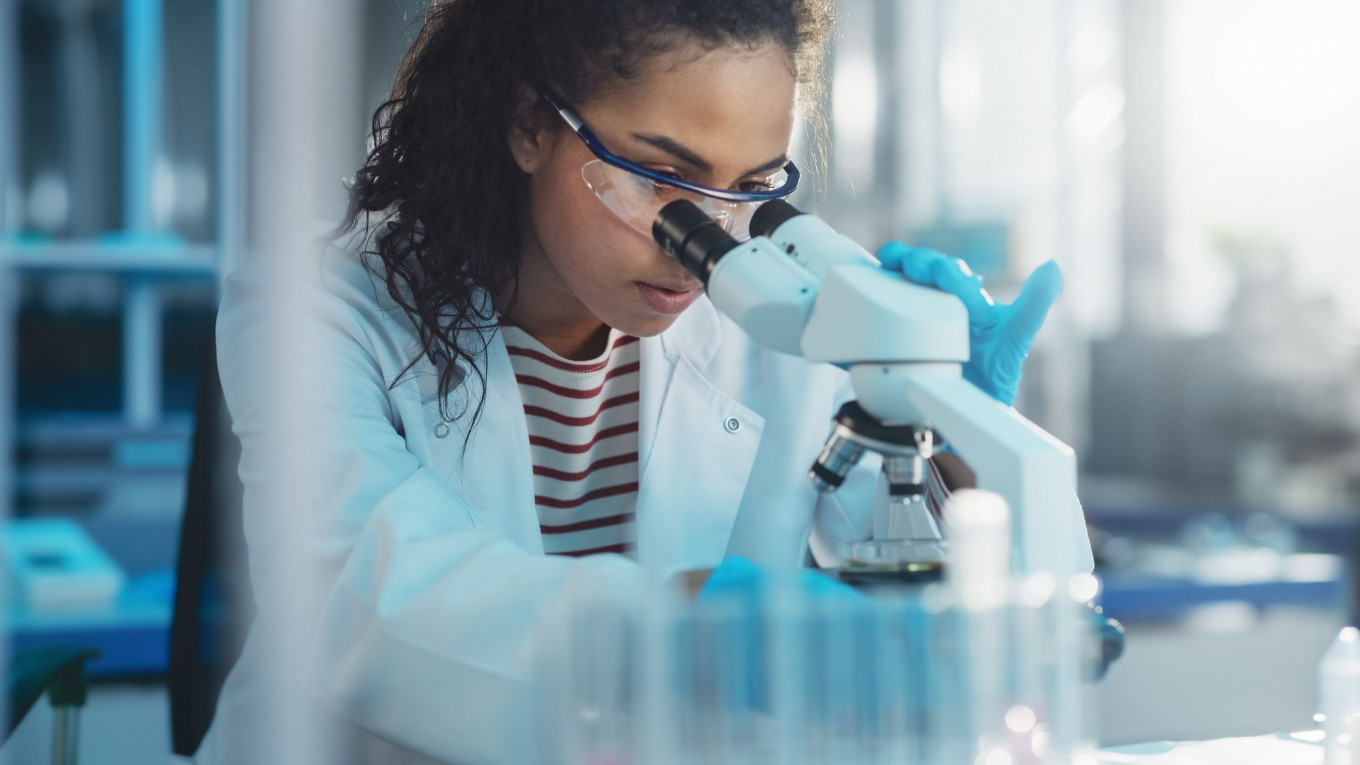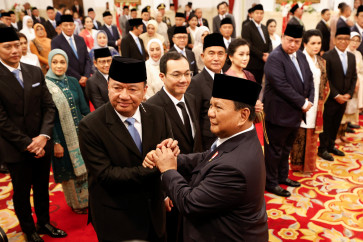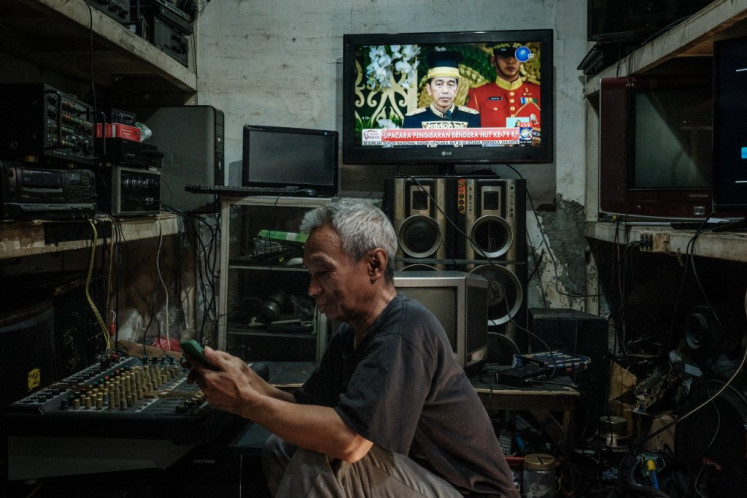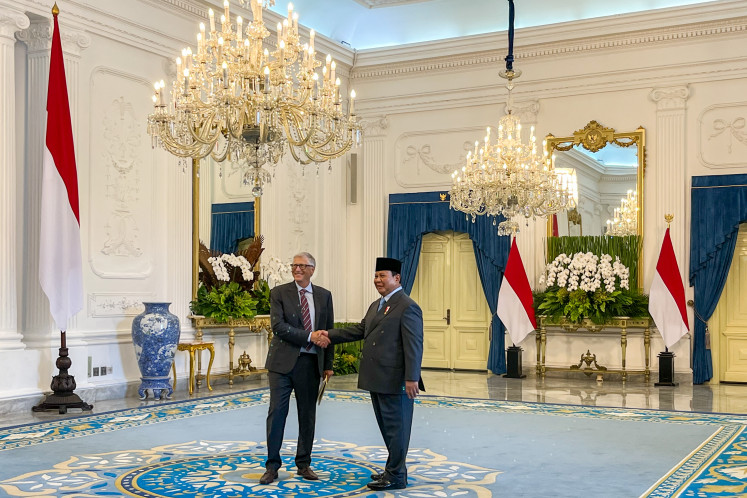Dual use of synthetic biology, the perils and promises
Because emerging synthetic biology is dual-use, governance must weigh the risk of misuse with the potential for beneficial use in innovation and development.
Change text size
Gift Premium Articles
to Anyone

R
ecently the convergence of advances in computer science, engineering, biological science and chemistry have made it possible to engineer living systems to optimize growth and increase pathogenicity.
The COVID-19 pandemic has been a watershed moment for synthetic biology. The discipline was put to a real-world pressure test to deliver innovative solutions to develop vaccines, diagnostics, therapeutics. The economic impact of synthetic biology is also growing, with the global market share soaring from US$9.5 billion in 2021 to estimated $33.2 billion by 2026.
Most people are aware of the new technologies, which produced millions of life-saving COVID vaccines using mRNA and the critical importance of the gene editing tool known as CRISPR. The COVID story is only the tip of synthetic biology that can incredibly change our lives in the future.
One of the reasons synthetic biology is so powerful is that it is going to have impacts across many industries. Around 20 percent of industrial chemicals are currently using biological processes, which allows us to make these chemicals much more cheaply and consistently.
Food is getting to be, or already is, a huge target for synthetic biology. We have to figure out how to feed billions of people on less and less arable land under conditions of climate change and scarce water.
Public health problems, too, can be addressed through synthetic biology. Gene mutations inheritable diseases can be corrected, and the edited cells can be brought back to health. There are possibilities to provide customized immunotherapies for different forms of cancer.
Synthetic biology is going to be fundamental to the coming world economy. The COVID-19 pandemic has proven that we cannot rely on stockpiles. We need to be able to make what we need and when we need it. Science holds out the promise of making this come true.
The COVID-19 pandemic has also demonstrated that significant biological threats can and will emerge from nature without warning, demonstrating that a single viral strain can have a profound impact on modern society. It has shown that infectious diseases can rapidly spread throughout a population without human engineering, making them the ideal substrates to develop engineered weapons.
These engineered bacteria and viruses can be co-opted for belligerent purposes. The asymmetric threats posed by biological weapons will continue to increase as new tools and technologies are developed, and as terrorist organizations become aware of and inspired by the enormous economic, emotional and government-destabilizing impacts caused by the COVID-19 pandemic.
Therefore, countries, including Indonesia, should continually monitor and reassess developments in synthetic biology within the context of technological changes and its capacity to shift the geopolitical paradigm.
Because emerging synthetic biology is dual-use, governance must weigh the risk of misuse with the potential for beneficial use in innovation and development. Unfortunately, biosecurity measures are mired in uncertainty around both the actual capabilities of synthetic biology as well as the motivations of actors given the increasing number of contexts being used.
Governments are still relying on old rules to regulate new technology, clearly insufficient strategy for ensuring security in the coming decades. Global dimensions of the policymaker-practitioner interface will be essential in realizing the many benefits of synthetic biology while minimizing the downsides.
The world needs to significantly broaden and deepen the dialogue in sharing information on benefits, risks, practical lessons and leveraging financial resources as a network hub; developing agreed technical guidance for use by policymakers and regulators, integrating synthetic biology with broader initiatives. Recognizing that a “no one size fits all” approach will be required to integrate important considerations related to diversity, equity and inclusion.
Building an effective biosecurity strategy requires understanding the novelties that synthetic biology creates in the biosecurity threat space, as well as the structural vulnerabilities these sciences can exploit and the likely causes of inadequate biosecurity practices. Synthetic biology’s novel biosecurity concerns arise from its broad scope, wider availability, complexity and uncertainty over current and future capabilities.
There are significant gaps in biosecurity effectiveness for synthetic biology. These insufficient and inadequate policies include the siloing of scholarship and practice across disciplinary domains and among government, industry, academia and civil society; viewing biosecurity as a cost and the framing of security problems ignores new actors and technological developments taking place in a variety of different parts of the world. Policies for synthetic biology must be scalable, transferable and adoptable towards emerging technical and social challenges.
Effective global biosecurity will not happen quickly and will not be easily adopted by governments and nongovernmental organizations. Successful biosecurity implementation must be adaptable to incorporate uncertainty and new capabilities. Urgent steps are required to place such notions into practice before a major incident occurs.
Many countries seek to leverage synthetic biology to gain an edge, economically, politically and militarily. At stake is the ability to drive and shape the global economy by upending old industries and creating entirely new ones.
There are also key implications for national security and societal resilience, such as the ability to strengthen supply chains and mitigate threats posed by pandemics, biodiversity loss and climate change.
Perils and promises, challenges and opportunities, synthetic biology offers them all. Synthetic biology itself is agnostic. The only constant in life is rapid change.
The 21st century grand challenges of pandemics and climate change offer synthetic biology two issues that will come to define how the discipline describes itself and how it is understood by policy makers. Too often our policy-making elites forget that humanity’s grand challenges find their basis in biology.
***
The writer is a former surgeon general of the Indonesian Military. The views expressed are his own.









